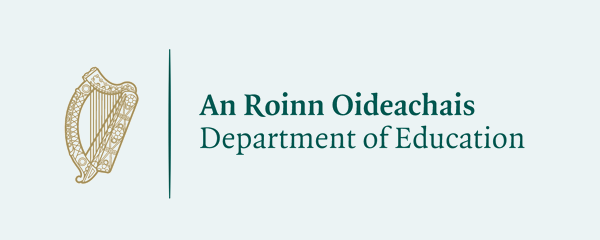
FUSE
Project Partners/Funders
Project News
Project Overview
FUSE Anti-Bullying and Online Safety Programme is developed by DCU Anti-Bullying Centre – a national university designated research centre located in DCU’s Institute of Education.
The Centre has a global reputation for its research excellence in bullying and online safety.
The FUSE Anti-Bullying and Online Safety Programme is supported by Rethink Ireland and the Department of Education and is referenced in Cineáltas: Action Plan on Bullying which acknowledges the importance of evidence-based, age-appropriate and culturally relevant anti-bullying programmes such as FUSE.
FUSE is the first research-based Anti-Bullying and Online Safety Programme designed to comply with UNESCO’s Whole Education Approach to tackle bullying and online safety issues in schools. It is based on 25 years of research on bullying prevention and intervention and is designed to support the wider SPHE/RSE/Wellbeing curricula in schools. FUSE consists of a suite of student-led workshops and resources delivered by teachers in classroom settings.
At the heart of FUSE is the aim of building capacity in schools to tackle bullying and online safety issues and to empower children and adolescents to understand their own behaviour, be able to recognise bullying and online safety risks and be confident in how to report and seek support when they need it.
FUSE is delivering tangible results and positive impact within school communities in tackling bullying & promoting online safety.
FUSE – A Research Based Anti-Bullying and Online Safety Programme
FUSE is designed to address two key concerns, namely (a) children and young people tend not to report bullying and (b) children and young people are increasingly facing online risks.
FUSE aims to help children and young people to improve their self-efficacy to recognise and report bullying behaviour and online risks safely. To that end, the programme is informed by Darley and Latané’s Bystander Intervention Model which outlines five sequential steps that an individual should follow in order to take action.
|
Steps |
Description |
Steps Used in FUSE |
|---|---|---|
|
Noticing |
Target/bystander’s self-efficacy in being aware of bullying/online risks |
Recognising bullying/online risks in self and others |
|
Emergency |
Target/bystander’s self-efficacy in realising the extent to which the event is serious and help is required |
Understanding Bullying/Online Risks as urgent issues requiring action |
|
Responsibility |
Target/bystander’s self-efficacy in accepting personal responsibility to do something |
Not ignoring Bullying/Online Risks |
|
Knowledge |
Target/bystander’s self-efficacy in knowing what to do to appropriately determine specific actions |
Knowing what to do about Bullying/Online Risks |
|
Intervention |
Target/bystander’s self-efficacy in taking practical action when necessary |
Taking action to safely intervene on bullying/online risks |
Our research shows that the children and young people who complete the FUSE workshops report high levels of self-efficacy in recognising, responding to, and reporting bullying and online risks.
It shows that teachers who deliver the FUSE programme also report high levels of self-efficacy in bullying prevention and intervention among children and young people. Consequently, through the FUSE programme school communities build capacity to better tackle bullying and online risks, and to empower children and young people to understand their own behaviour, be able to recognise bullying and online safety risks and to be confident in how to report and seek support when they need it .
Research Areas
Publications
FUSE Anti-Bullying and Online Safety Programme: Measuring Self-Efficacy Amongst Post-Primary Students – https://doi.org/10.1080/


